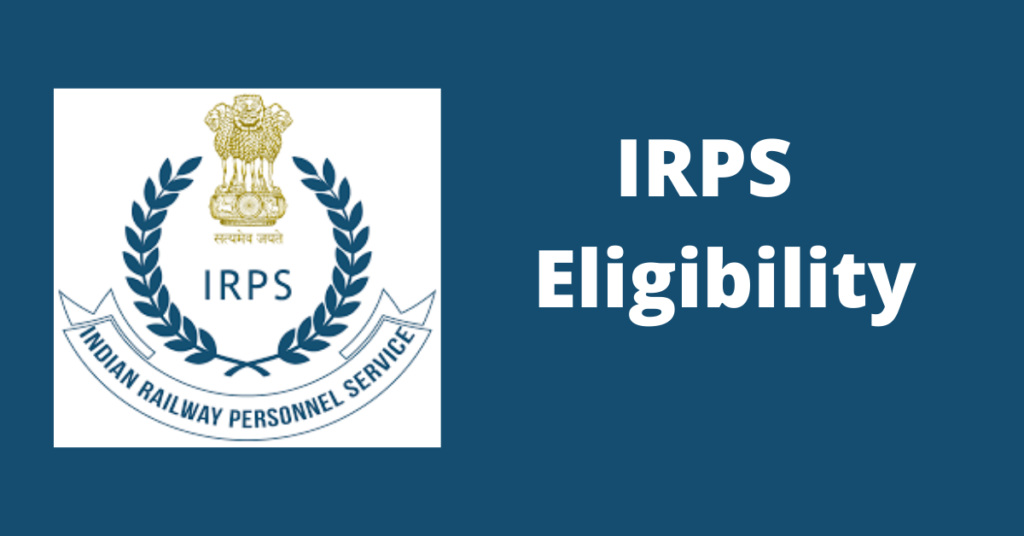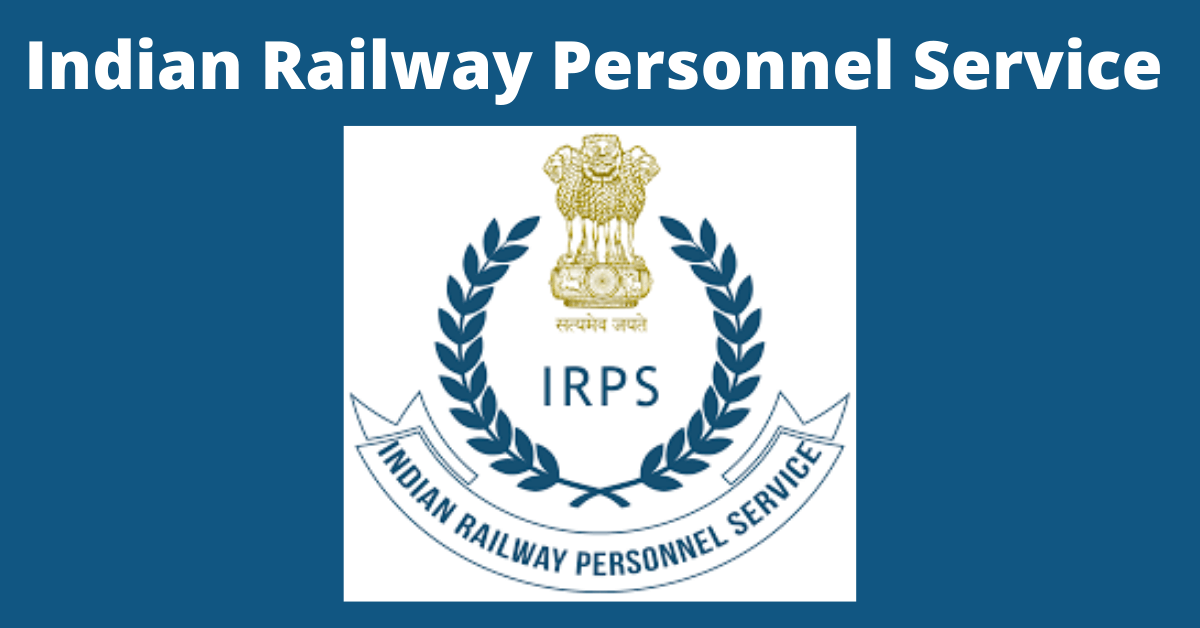IRPS : Simple and Easy Informational Guide
Indian Railway Personnel Service is a central civil service under the Government of India. It was established in 1980.
IRPSE is conducted by Union Public Service Commission( UPSC) for the recruitment of officers responsible for managing the Human Resources of the Indian Railways.
IRPS EXAM
The UPSC generally releases the notification of the Civil Services Examinations notification in the month of February. Aspirants willing to appear for this All Indian Services along with other services can apply online by visiting the official website of UPSC.
| Notification | Month |
| Civil Service Examination Advertisement | February |
| IRPS- Online Application Form | February to March |
| IRPS- Preliminary Admit Card | 2nd Week of May |
| IRPS – Preliminary Exam | October |
| IRPS – Preliminary Result | November |
| IRPS -Main Exam | January |
| IRPS -Main Result | February |
| IRPS -Interview | March to April |
| IRTSE -Final Result | May |
Eligibility Criteria: IRPS

1. Nationality
- The candidate must be a citizen of India to be eligible for the Indian Administrative Services (IAS) and The Indian Police Service (IPS), and for other services, the candidate must be either of the following :
- Candidates must be a citizen of India
- Candidates must be a citizen of Nepal or a subject of Bhutan.
- Candidates must be Tibetan refugees who came to India before January 1, 1962, for settling permanently in India.
- Candidates must a person of Indian origin who has migrated from Burma, Pakistan, Ethiopia, Sri Lanka, Kenya, Myanmar, Uganda, Malawi, Tanzania, Vietnam, Zaire with the motive to settle permanently in India.
2. Educational Qualification
- Candidates must hold any Bachelor’s degree from any of the recognized universities. There is no minimum percentage required for graduation.
- Candidates who have appeared for the qualifying exam and are awaiting results are also eligible.
- Candidates with professional and technical qualifications by recognized universities or their equivalent are also eligible to apply.
3. Age Limit & Number of Attempts
A candidate should be a minimum of 21 years and a maximum of 32 years to appear for the Civil Service Examination. The maximum age mentioned above is relaxable for the following candidates :
- Scheduled Caste/Scheduled Tribe (SC/ST): 5 years
- Other Backward Classes(OBC) : 3 Years
- Defence Service Personnel : 3 years
- Ex-servicemen and ECOs/SSCOs who have served at least 5 years in Military Service as of 1st of August of the Notification Year: 5 years
- Blind, Deaf-mute and physically handicapped person: 10 Years.
| Category | Maximum Age Limit | No of Attempts |
| General | 32 Years | 06 |
| Other Backwards Castes (OBC) | 35 Years | 09 |
| Economically Weaker Section(EWS) | 32 Years | 06 |
| Scheduled Caste/Scheduled Tribe (SC/ST) | 37 Years | Till the age limit |
| Physically disabled candidates | 42 Years | For General and OBS candidates = 9
For SC/ST Candidates = Till age limit |
IRPS Officer: Roles & Responsibility
- Responsible for Personnel management, Industrial relations, and looking after the legal and court matter.
- Responsible for Manpower planning, recruitment, training, promotion, reservation, transfer, and posting payment salary and wages.
- Maintaining cordial Industrial relations.
- Implementation of Labour Law and looking after the Legal & court cases.
- Addressing the Grievance Redressal.
Career Graph of IRPS Officer
The highest position, an IRPS officer can desire is the rank of Additional Secretary in GOI under the Central staffing scheme. The following is the career path of an IRPS Officer :
- Foundational Training at Lal Bahadur Shastri National Academy of Administration (LBNAA), Mussoorie, Uttarakhand.
- IRTS probationers then go through training at various institutes like the National Academy of Indian Railways (NAIR ), Vadodara, National Academy for Direct Taxes (NADT), Nagpur.
The indicative hierarchy is given below (Top to Below)
| Railway Staff College | Division | Zonal | Workshop | Railway Board | GOI under Central Staffing Scheme |
| Advisor | Additional Secretary | ||||
| Chief Personnel Officer | Chief Personnel Officer | Executive Director | Joint Secretary | ||
| Senior Divisional Personnel Officer | Deputy Chief Personnel Officer | Deputy Chief Personnel Officer | Director | Director | |
| Professor | Divisional Personnel Officer | Senior Personnel Officer | Workshop Personnel Officer/Senior Personnel Officer | Deputy Secretary | Deputy Secretary |
| IRPS(Probationer)
/APO/Asst Professor |
Assistant Personnel Officer | Assistant Personnel Officer | Assistant Personnel Officer | Under Secretary | Under Secretary |
IAS EXAM PATTERN
UPSC conducts exams in three-level as mentioned below. The candidate has to clear all the 3 exams successfully to get the offer letter from Union Public Service Commission( UPSC)
- Preliminary Test
- Main Exam
- Interview.
Stage One-Preliminary Test (400 Marks)
- The Preliminary Exam consists of GS (General Studies) & CSAT( Civil Service Aptitude Test).
- Both the papers are objective type (Multiple Choice Questions)
- The question papers are set in Hindi and English language.
- Blind candidate gets an additional 20 minutes of time for both papers.
- Candidates appearing in the preliminary test must qualify for the cut-off score to get themselves eligible for the mains exam.
- There is a negative marking associated with the question asked in the exam.
| Paper | Type | Number of Questions | Total Marks | Negative Marking | Duration |
| General Studies I | Objective( MCQ) | 100 | 200 | Yes | 2 Hours |
| General Studies II (CSAT) | Objective( MCQ) | 80 | 200 | Yes | 2 Hours |
Stage Two-Main Examination (2025 Marks)
- Candidates who qualify for the preliminary test are called for the Main Exam.
- Main exam consists of 9 papers.
- Paper A & B are qualifying in nature (Highlighted below)
- The candidate needs to obtain at least 25% in each of the Paper I to Paper VII to be given weightage to the Main Exam
- Paper A is not compulsory for the candidate belonging to the State of Arunachal Pradesh, Manipur, Meghalaya, Mizoram, Nagaland, and Sikkim as well as the candidate from hearing impairment provided the fact that they have been exempted from such 2nd or 3rd language courses from their board or university.
- The language paper consists of the languages included in the 8th schedule of the Constitution.
- All the paper is bilingual – Hindi & English except for the language papers.
The written exam consists of the following papers
| Paper | Subject | Type | Duration | Total Marks |
| Paper A | One of the Indian Language | Descriptive | 3 Hours | 300 |
| Paper B | English | Descriptive | 3 Hours | 300 |
| Paper I | Essay | Descriptive | 3 Hours | 250 |
| Paper II | General Studies I | Descriptive | 3 Hours | 250 |
| Paper III | General Studies II | Descriptive | 3 Hours | 250 |
| Paper IV | General Studies III | Descriptive | 3 Hours | 250 |
| Paper V | General Studies IV | Descriptive | 3 Hours | 250 |
| Paper VI | Optional I | Descriptive | 3 Hours | 250 |
| Paper VII | Optional II | Descriptive | 3 Hours | 250 |
| Sub Total Marks | 1750 | |||
| Interview Marks | 275 | |||
| Grand Total Marks | 2025 | |||
The subject which is covered in the General Studies in Main Exam is mentioned below
| General Studies I | General Studies II | General Studies III | General Studies IV |
| Indian Heritage and Culture | Governance | Technology | Ethics |
| History and Geography of the World | Constitution | Economic Development | Integrity |
| Society | Polity | Bio-Diversity | Aptitude |
| Social Justice | Environment | ||
| International Relations | Security and Disaster Management |
The list of the Optional Paper VI and VII of the Main Exam is enumerated below
| Agriculture | Chemistry | History | Geography | Mathematics |
| Animal Husbandry and Veterinary Science | Political Science and International Relations | Mechanical Engineering | Commerce and Accountancy | Electrical Engineering |
| Anthropology | Psychology | Statistics | Physics | Economics |
| Botany | Sociology | Law | Medical Science | Geology |
| Zoology | Philosophy | Civil Engineering | Public Administration | Management |
| Literature can opt from any of the following languages: Assamese, Bengali, Bodo, Dogri, Gujarati, Hindi, Kannada, Kashmiri, Konkani, Maithili, Malayalam, Manipuri, Marathi, Nepali, Odia, Punjabi, Sanskrit, Santhali, Sindhi, Tamil, Telugu, Urdu, and English.
|
||||
Stage Three- Interview (275 Marks )
The candidate who qualifies for the mains exam is called for the interview process. This is the last and final stage of the recruitment cycle before the final results are declared. The maximum mark in the interview is 275 thus accruing the total marks in the merit list to be 2025. UPSC board takes the interview which consist of the competent panelist, who would judge the candidature on the following ground :
- Mental Attentiveness
- Critical power of assimilation
- Clear and Logical Interpretation
- Balance of Judgement
- Ability of social solidarity and leadership
- Intelligent curiosity
Getting into a good job is a dream, you need to plan it before that.
Career Planning plays an important role in shaping your career, so is the planning to choose the best suitable B-School for yourself. You need to focus on various aspects before jumping into a final decision.
Career path analysis helps you in getting the best road map. Get your career assessment test by appearing for the free student profiling process. https://eduxact.edumilestones.com/

Study_Abroad
Click the link below and get an exhaustive career report and book for a free counseling session. For Studying abroad in 15000+ across 20+ Countries visit the mentioned link.
Click: Start Study Abroad Profiling to get access to 15000+ Universities across 20+ Countries
Please share your valuable inputs regarding the article. Also, help me develop other information guides by giving your suggestions.
You can comment in the section below for sharing your thoughts.

IRPS : Simple and Easy Informational Guide Read More »

